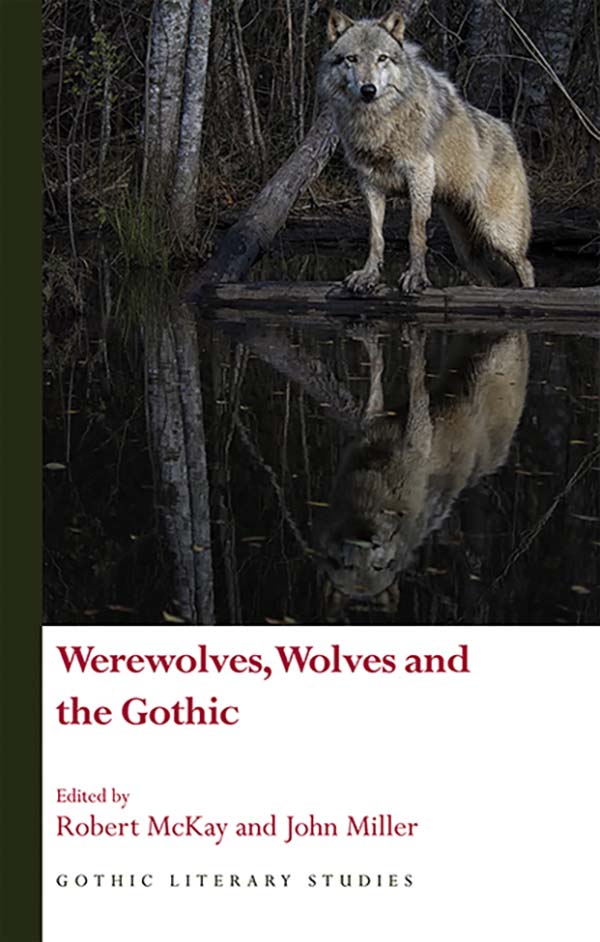Werewolves, Wolves and the Gothic
Editor(s) Robert McKay,John Miller
Language: English
Genre(s): Literary Criticism
Series: Gothic Literary Studies
- September 2017 · 304 pages ·216x138mm
- · Hardback - 9781786831026
- · eBook - pdf - 9781786831033
- · eBook - epub - 9781786831040
Wolves lope across Gothic imagination. Signs of a pure animality opposed to humanity, in the figure of the werewolf they become liminal creatures that move between the human and the animal. Werewolves function as a site for exploring complex anxieties of difference – of gender, class, race, space, nation or sexuality – but the imaginative and ideological uses of wolves also reflect back on the lives of material animals, long persecuted in their declining habitats across the world. Werewolves therefore raise unsettling questions about the intersection of the real and the imaginary, the instability of human identities and the worldliness and political weight of the Gothic.
This is the first volume concerned with the appearance of werewolves and wolves in literary and cultural texts from the mid-nineteenth century to the present. Drawing on representations of werewolves and wolves in literature, film, television and visual culture, the essays investigate the key texts of the lycanthropic canon alongside lesser-known works from the 1890s to the present. The result is an innovative study that is both theoretically aware and historically nuanced, featuring an international list of established and emerging scholars based in Britain, Europe, North America and Australia.
Acknowledgements
List of Contributors
List of Illustrations
Introduction, Robert McKay and John Miller
Social Anxieties
1.Like Father Like Son: Wolf-Men, Paternity and the Male Gothic, Hannah Priest
2.Wicked Wolf-Women and Shaggy Suffragettes: Lycanthropic Femme Fatales in the Victorian and Edwardian Eras, Jazmina Cininas
3.Postcolonial Vanishings: Wolves, American Indians, and Contemporary Werewolves, Michelle Nicole Boyer
4.The Good, the Bad, and the Ubernatural: The Other(ed) Werewolf in Twilight, Roman Bartosch and Celestine Caruso
5. ‘Becoming woman’/Becoming Wolf: Girl Power and the Monstrous Feminine in the Ginger Snaps Trilogy, Batia Boe Stolar
Species Troubles
6.‘Something that is either werewolf or vampire’: Interrogating the Lupine Nature of Bram Stoker’s Dracula, Kaja Franck
7.Saki, Nietzsche and the Superwolf, John Miller
8.A Vegetarian Diet for the Were-wolf Hunger of Capital: Leftist and Pro-animal Thought in Guy Endore’s The Werewolf of Paris, Robert McKay
9.Everybody Eats Somebody: Angela Carter’s Wolfish Ecology, Margot Young
10.‘But by Blood No Wolf Am I’: Language and Agency, Instinct and Essence – Transcending Antinomies in Maggie Steifvater’s Shiver Trilogy, Bill Hughes
11.Transforming the Big Bad Wolf: Redefining the Werewolf through Grimm and Fables, Matthew Lerberg
Author(s): Robert McKay
Robert McKay is Senior Lecturer in English Literature at the University of Sheffield.Author(s): John Miller
John Miller is Senior Lecturer in Nineteenth-Century Literature at the University of Sheffield.

